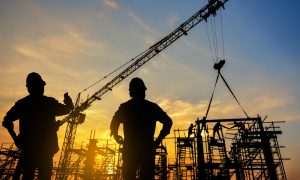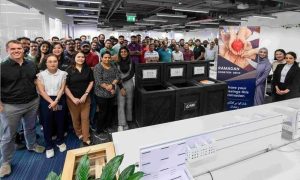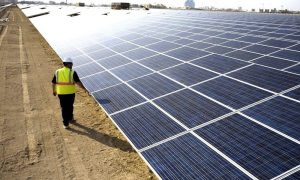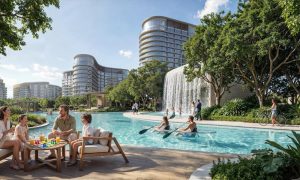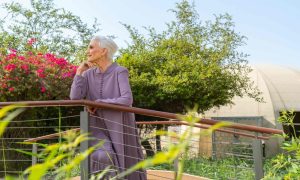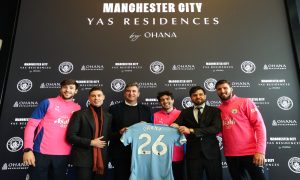Sun shines on solar in the UAE
James Stewart of ALEC Energy explains the business case for solar rooftops
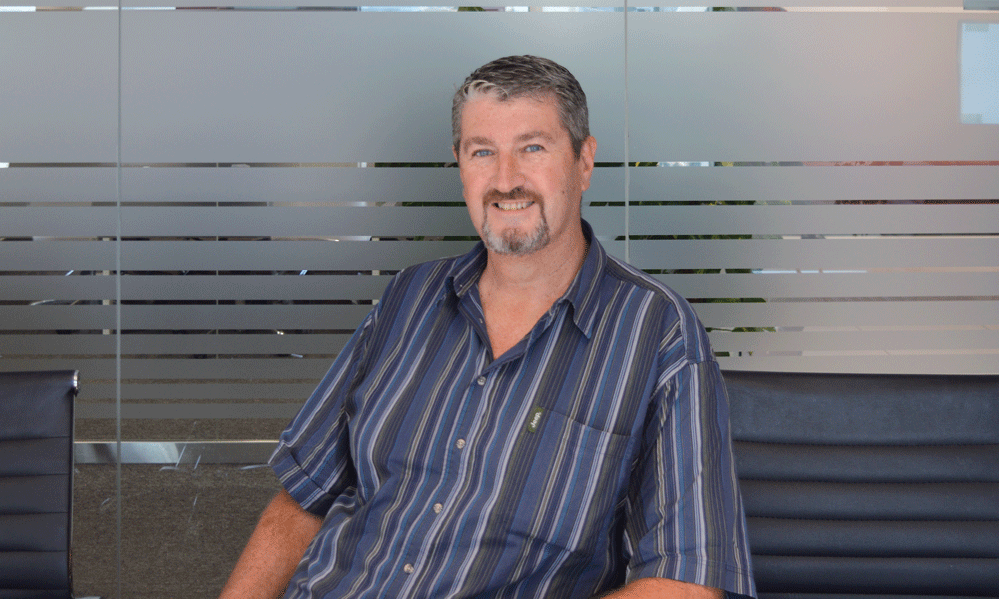
The introduction of green building regulations in both Abu Dhabi and Dubai has had a significant impact on how the UAE’s construction industry views environmental issues. Companies and governments are now thinking about how they can implement sustainable strategies to increase energy efficiency and cut down on the use of vital resources.
This increased sensitivity to environmental issues means a renewed focus on the concept of solar power. For a long time, solar technology was considered somewhat of a vanity project, with few gains in return for enormous expenditure. However, as the technology has developed, so have the returns.
In April of this year, the Renewable Energy Roadmap 2030 report was released by the International Renewable Energy Agency, Abu Dhabi’s Masdar Institute and the Ministry of Foreign Affairs. It says that the UAE could see potential savings in the “billions of dirhams” if it developed its solar energy projects ahead of other finite energy sources.
By boosting its renewable energy capacity to 10% of its total energy mix and 25% of its power generation, the UAE could save up to $1.9 billion annually by 2030, reducing the consumption of fossil fuels as natural gas prices continue to see rapid increases while renewable energy costs continue to fall, the report explains: “When accounting for health and environmental benefits, additional net annual savings of $1bn to $3.7bn by 2030 could be generated.”
This attitude is starting to seep into the construction and real estate development sectors as well. Building regulations in Abu Dhabi and Dubai now encourage and reward designs that embrace sustainability and energy efficiency, while mandating energy savings. The Dubai Electricity and Water Authority has also stepped up the pressure through the introduction of Shams Dubai, part of a new wave of ‘smart city’ initiatives in Dubai.
Given the climate of change engulfing the UAE, it’s no surprise to see construction companies getting in on the act. While consultants and specialist firms have been exploring the limits of sustainability, contractors in general have avoided looking at renewables and efficiencies as a serious business revenue generator, preferring instead to focus on the bread and butter of actual construction work.
However, this may be all about to change. Big Project ME sat down with James Stewart, the general manager of ALEC Energy, a new division of ALEC, the renowned Dubai-based contracting giant. With perceptions of sustainability at such a high in the market, Stewart explains that launching an energy efficiency-focused company, as part of a major contractor, has never made more sense.
“Just over a year ago, we as a business were casting around for opportunities for us to grow the business. We looked at different options and decided that energy efficiency in the market was a rising topic. It was becoming more and more apparent that buildings in Dubai are not as energy-efficient as they need to be,” he relates.
“We decided that energy efficiency was a market that we would look to enter. We made an investment into a company called Smart4Power. It has been focusing on energy efficiency in this market, auditing buildings and recommending where people can save money. Essentially, it’s about improving the efficiency of the system and saving money for the client.”
Fast forward to January this year, and plans are well underway for ALEC to enter the building efficiency and solar rooftop markets, in support of the UAE and Dubai governments’ vision for green building and energy efficiency. DEWA’s solar initiative covers both utility-scale solar projects and a rooftop solar programme; ALEC Energy is focusing on the latter as it aims to develop a strong base for its offering.
“[The solar rooftop programme] comprises two elements: housing, which DEWA is going to handle in smaller packages with consumers, while the other is the rooftop market for commercial and industrial warehouses, which is JAFZA and Jebel Ali and all the large warehouses out there. We’ve decided, in line with our energy efficiency offering, to provide solar power to these buildings,” says Stewart.
“It [solar] is supported by the Supreme Energy Council and DEWA, but it’s not very well supported here by companies because it’s a new initiative. One of the competitive advantages that we have is that we’re a large local business, with an excellent brand and reputation. When you’re signing solar deals with companies, because they tend to be longer term deals of 10 to 15 years, that reputation gives clients who are signing on to those deals some comfort, because they’re signing them with a large, responsible brand with a reputation for quality.”
The reputation of ALEC will be crucial to ALEC Energy’s success. While the division will be starting off small, it intends to grow very quickly. By the end of 2015, Stewart expects to have at least three deals signed for rooftops in the UAE, while the division is using ALEC’s contacts and connections to develop a strong pipeline of opportunities for 2016. The division will initially use ALEC’s vast workforce to install projects while it builds up its own workforce and develops specialist competencies.
“We have recruited people from outside, and we have people within our businesses going on DEWA training courses at the moment. It’s a combination [recruitment process]. Solar is a specialist field, so you need some background in it. Obviously, we don’t have that yet, but we do have people with strong electrical engineering backgrounds, and that’s an easy transition to solar,” he explains.
“This year, we’ll have six or seven people, but we’ll see how it grows. The installation teams will build up over time, but initially we’ll probably use our ALEMCO division to support us. We’re fortunate that we’ve got a large resource pool to choose from.”
If the division is successful, the aim then will be to integrate with ALEC’s assorted offerings and provide a full-service package to its clients. “It would be our intention, as we tender on large construction projects, that should they be suitable for solar – because not all buildings are suitable – then it would be something we could offer as part of our tender package, as an added value element.”
Often, the most challenging part of getting clients to take on solar is convincing them in the first place. Stewart and the team at ALEC are aware of this, and have come up with a number of solutions to help shift perceptions and change minds. ALEC Energy’s first rooftop solar project will be at ALEC’s own yard at DIC. By backing the technology with its own investment, the team hopes to showcase their belief in it and the benefits it can bring to a company.
“I think that part of being one of the fore-runners in this business is that we have an obligation to educate our clients on the benefits of this. It really does have financial benefits. It’s not just nice to have, it’s got nothing to do with costing you money to go green. This has real financial benefits.
“One of the challenges for us as a business is to get to the people at the right level, which tends to be at the upper management, board level, and being able to sit down with them and put this offering in front of them. I think once you see the simplicity of the offering, backed by ALEC as a large contractor, it’s almost a no-brainer,” he reiterates.
As part of this plan to push solar into the forefront of the market, Stewart explains that ALEC Energy is prepared to finance companies interested in putting solar power plants on their rooftops. “One of the problems with putting solar on the rooftop is that when you go to the owner, they have to make that investment and recoup that cost over time. Many companies don’t have the budget for that, or they won’t be able to [afford it]. That was one of the key stumbling blocks that we recognised early on.”
“You would be faced with questions about how much it’s going to cost, and once you start talking about ‘years and years’, you’ll see them start to lose interest. They’re focused on quarter-to-quarter in terms of their business. We decided the best way to tackle this would be to develop a financial model where we’d be able to finance the system, they’d gain the benefit of the solar system on their roof, reducing their energy costs, and we’d take the risk on the long-term operations on that.
“We believe quite strongly in this as a business model, and our research shows that if we’re able to offer good-quality clients a solar system on their rooftop, in terms of a solar lease, essentially they’re getting power at a discounted rate to the DEWA rate.”
The long-term aim, should solar rooftops take off, is for ALEC Energy to invite investors into the model. However, Stewart concedes there is a long way to go before this happens, with estimates of the size of the market varying wildly, from 500MW to a huge 1GW, or even more. For now, however, the focus remains firmly on the UAE market and turning ALEC Energy into a major success for both ALEC and the renewable energy sector as a whole.
“It starts with governments having the will and the ability to communicate to their commerce and industries that this is something that they need to do. The UAE government has been very good at that, and now as a business, we need to take up that initiative and run with it.
“In the other markets, they are a couple of years behind where we are here, but they certainly have a massive interest in solar, especially in Saudi Arabia and Jordan. But those tend to be very large-scale plots, they’re not rooftop-type things that we’re looking at currently. I’m sure that will come, and we’ll look at those markets, but for the moment, we’re not focusing on markets outside the UAE. We need to establish a strong base here and then we’ll move outwards,” Stewart says in conclusion.


